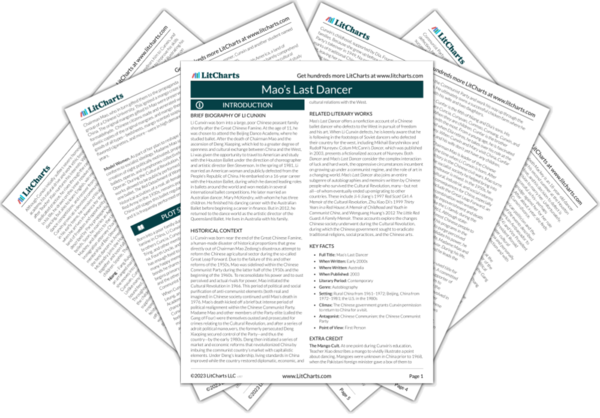Many years earlier, Teacher Xiao warned Cunxin about taking on too much and risking his health for dancing, but this is the first time that Cunxin has injured himself. While the book doesn’t explore the circumstances fully other than describing the fall during the competition, readers should note how intensely he has poured himself into dancing in the wake of his defection and divorce. Dancing has brought him success and freedom, but it’s also become an unhealthy coping mechanism. In the arc of Cunxin’s life, this injury warns him to address some of the root causes of his unhappiness, including his loneliness and his excessively high standards.


